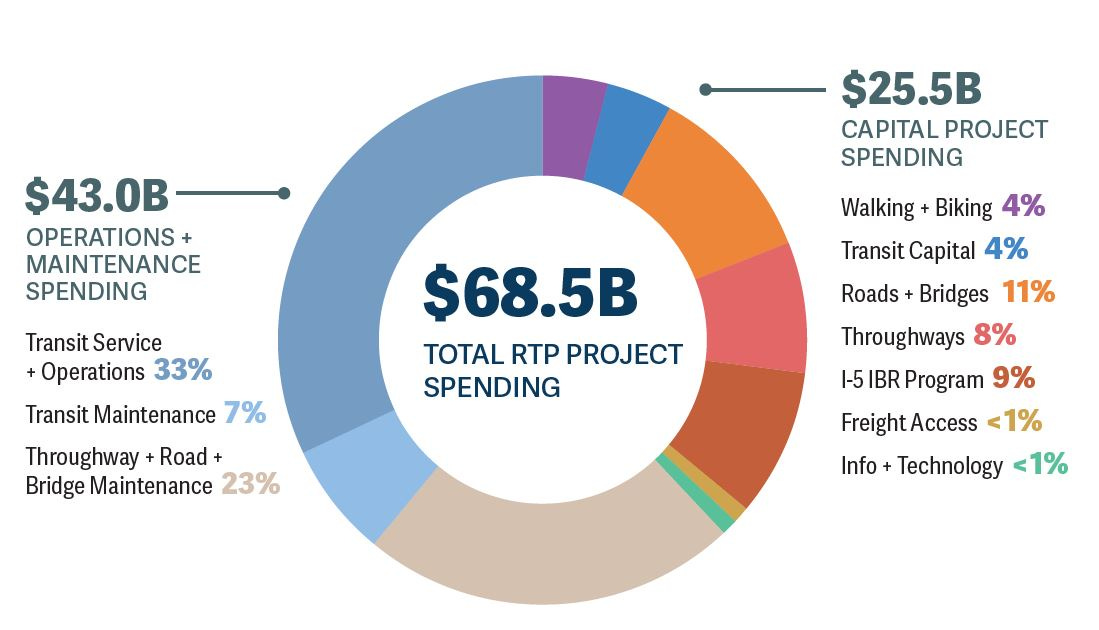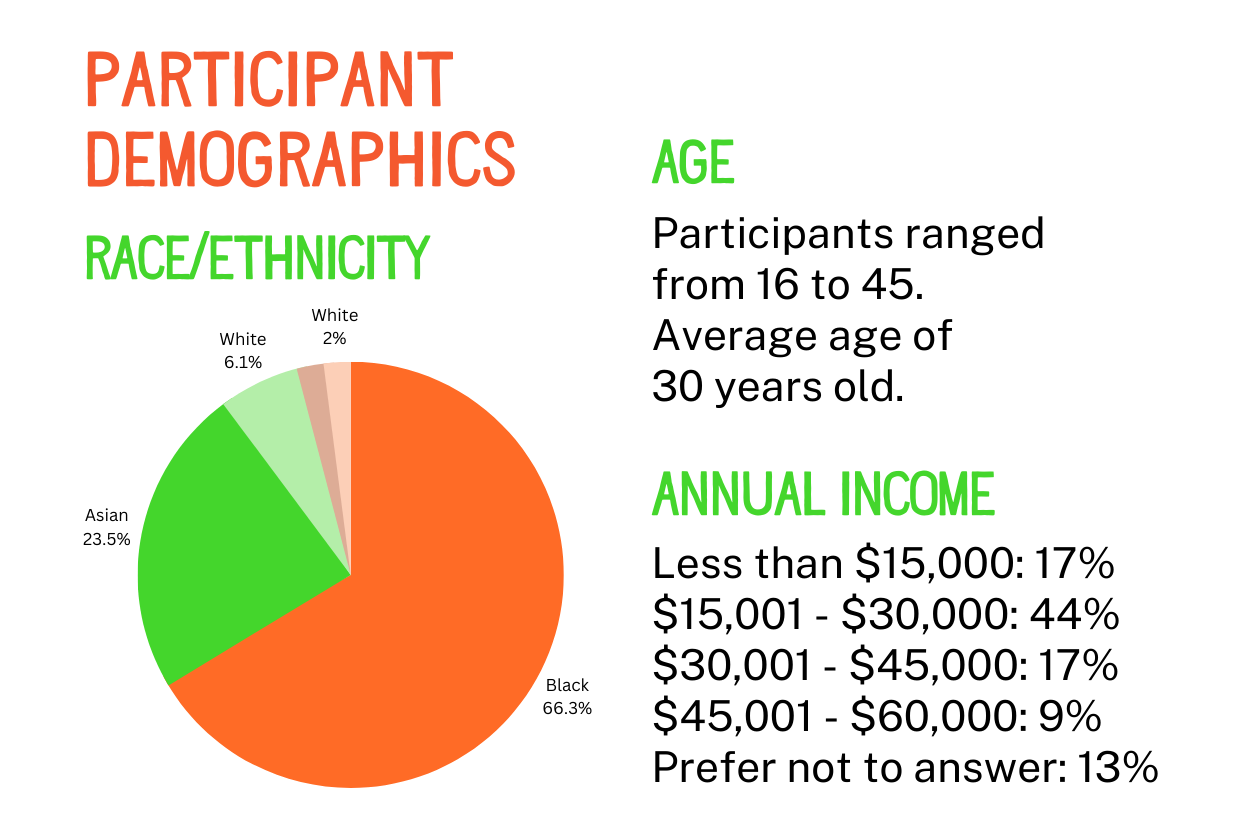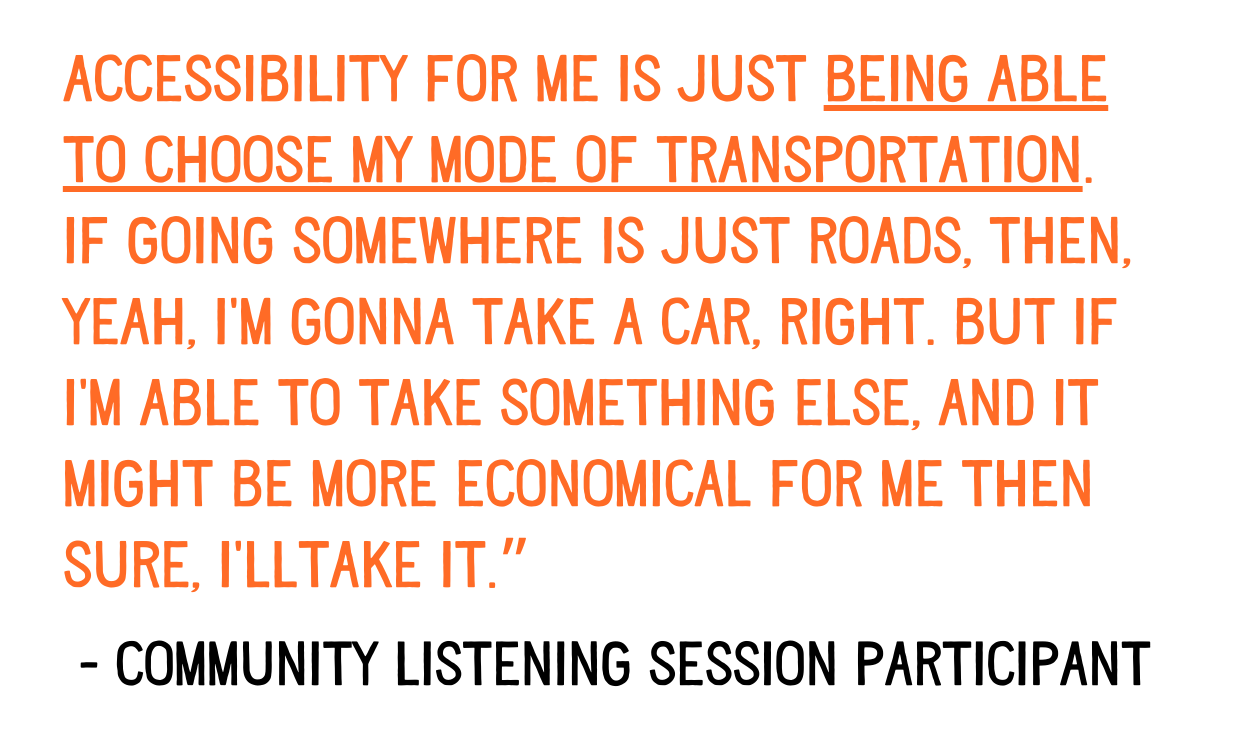Regional Leaders Will Prioritize $68.5B for Greater Portland's Transportation System through 2045
Yes, that's B for billion. Learn how to influence their spending priorities for the next two decades.
On July 10th, Metro published a whopping 572 page dossier on the policies, projects, and funding necessary to meet its vision for the region’s transportation system for the next two decades.
By 2045, everyone in the greater Portland region will have safe, reliable, affordable, efficient, and climate-friendly travel options that allow people to choose to drive less and that support equitable, resilient, healthy, and economically vibrant communities and region.
2023 Regional Transportation Plan vision statement
This government document is officially known as a Regional Transportation Plan (RTP). Usually, RTPs are updated every five years, as required by federal law. The 2023 Metro RTP update started 18 months ago and must be completed by Wednesday, December 6th.
The document is currently in its draft stage, where public comments and questions are welcomed. Now through August 25th, Metro wants to hear from YOU! Visit the Public Comment page or download the factsheet to explore your options.
On Thursday, July 27th, Metro Council heard public testimony on the draft RTP, including three testimonials from The Street Trust staff! Click here to hear our thoughts on how to improve upon the plan before it’s adopted in December.
How did we get here?
Over the last several years, Metro staff developed the draft 2023 RTP and High Capacity Transit Strategy with input and recommendations by 5 advisory committees, including elected officials, representatives of transit agencies, technical staff, and community members. They also worked with transportation agencies across the region to build a list of priority projects.
A hallmark of the process was community engagement. Earlier this year, Metro partnered with seven community-based organizations, including The Street Trust, to hold listening sessions with communities whose voices historically were not prioritized.
The Street Trust held listening sessions at Portland State University, Immigrant and Refugee Community Organization, ACHIEVE Coalition, and Clackamas Community College. A total of 63 people took part and our findings informed the draft High Capacity Transit Strategy.
We also held a series of individual engagements with community members in the field, seeing the infrastructure they interact with on a daily basis firsthand.
TST staff took field trips to Portland’s Albina area, Lents neighborhood, Beaverton, and Oregon City to interview community members about their experiences with the transportation system. Can you match the photos to their locations?
What are we hearing?
After consulting with the community, we heard three priorities emerge: equitable transportation, mobility options, and safe system.
Participants described their ideal transportation system as one where an individual's identity, such as race or socioeconomic status, does not impact their transportation experience. Conversations also noted the role policymakers have in prioritizing equitable transportation and allocating funding accordingly.
Participants expressed the importance of having the ability to choose one's mode of transportation. They frequently highlighted the dominance of infrastructure for automobiles in the region. As a whole, participants expressed interest in increased transit capacity and access.
Safety was emphasized as a crucial component of transportation. Participants expressed a need for increased infrastructure for pedestrian, bike, and transit users, specifically improving lighting around transit stations, making clearly identified bike lanes, and increasing transit access closer to housing developments.
We also collected feedback on Metro’s proposed capital project spending, and got a sense for its alignment with community priorities.

Share your views through August 25th
Now it’s time for Metro to hear from YOU! All comments submit during the public comment period (Now - Wednesday, August 25, 2023) will be considered by decision-makers before the plan is submitted for a vote in November 2023.
There are a variety of ways to comment.
Comment at a Metro Council public hearing on July 27 or Sept 28
Take an online survey to provide your feedback
Use an online comment form to submit proposed changes or edits
Write a letter and mail to Metro Planning, 600 NE Grand Ave., Portland OR 97232
Submit email to transportation@oregonmetro.gov
Call 503-797-1750 or 503-797-1804 TDD













Could the wonderful dream of the "passoire" come true with this funding? https://bikeportland.org/2023/06/21/guest-essay-a-plan-for-a-passoire-filled-portland-376392
When designing pedestrian and bike infrastructure for the SAFETY of citizens, create barriers (curbs, candlesticks etc) to separate auto traffic from pedestrians and cyclists. Research European cities, specifically the Netherlands to see how, through time, auto traffic has been separated from pedestrians and cyclists, allowing for a SAFE and more efficient transportation system.